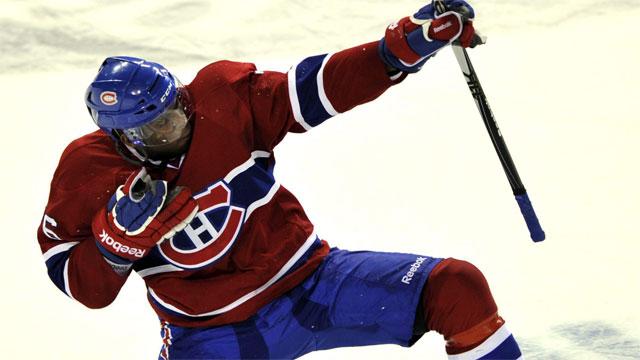Written by new writer Tina Poole
The last time we saw Carey Price he was getting run over by New York Rangers forward Chris Kreider during game 1 of the EC Finals. He would suffer a knee injury on the play that prematurely ended his season. Thankfully, it was determined that the injury did not require surgery, which, depending on damage found, could have potentially delayed the start of the 2014-15 season for Price. At the time, Price was in the midst of a stellar year, having led Team Canada to Gold at the 2014 Winter Olympics in Sochi. He was also a key reason why Montreal was still alive in the playoffs.
After all that hockey, Price definitely earned some good old R & R. He stayed in Montreal to rehab the knee injury until mid-June. Then, he went home to Kelowna where he spent time with family and friends. Carey Price was born in Anahim Lake, a ten-hour drive northwest of Kelowna. Price has been back and skating since mid-August. Time will tell whether there are any lasting effects from the injured knee. Until Price faces some shots in a game or practice, it won’t be certain whether the knee injury has fully healed.
In between all the rehab sessions and recovering from a long season, Carey Price found time to give back to his home town of Anahim Lake. Price established two new breakfast clubs to ensure that local grade school and high school children won’t go to school hungry. Anahim Lake is a community of First Nations people, and traditionally those families tend to struggle financially to make ends meet.
Looking ahead to training camp, Price faces some stiff competition for playing time. When he was injured, 24-year-old rookie Dustin Tokarski saw his first NHL action and did not look out of place. Also in the mix is veteran Peter Budaj, who has a track record of being a reliable backup. Barring a setback with Price’s knee, the starting job should be his with Tokarski and Budaj battling for the right to back up Price. After the phenomenal season last year, Price will be challenged to repeat the solid numbers he put up. He will also be a key player in the success of the upcoming NHL season. Price will be relied on heavily to keep the Canadiens in games this season, as the team lost several key players via free agency and trade in the offseason. No doubt, Price will be happy to see all-star defenseman P.K. Subban, who recently signed an 8-year deal to keep him in Montreal through the 2021-22 season, dealing with pesky forwards in front of him.
Let’s hope for a well-rested and healthy Price! Keep calm and Carey on.
Bring on the 2014-15 NHL season!







